Stay up to date with our work
Our monthly updates are a great way for you to stay up to date with our work, events, and higher education news.
This is a past event from 7 December 2023, 9:30am - 4:30pm (GMT)

They are unavailable to book
Join us online on Thursday 7 December as we bring together leading experts to discuss the latest key aspects of research and innovation in higher education of research, including REF, financial sustainability, innovation, security, international partnerships, impact and more.
Why should you attend?
This online one-day conference will provide informative, timely content from the most pertinent speakers on the topic, as well as a wide range of opportunities to network, discuss, and make connections with colleagues within the sector.
You will also be able to access the recordings of sessions after the event, including any sessions which you were unable to attend live. Please note that the 'Managing security-related issues in university research teams' session will not be recorded.
If you have any questions about this or any other of our events, please contact us at [email protected] or 07500 441505.
We allow delegates to cancel their bookings up to one month before the event and receive a refund. If this applies to you, please contact us at the email or phone number above.
If you want to stay up to date with our events, news and publications, you can sign up for our newsletters here.
Professor George Talbot, Pro Vice Chancellor (Research) and Dean of Arts & Sciences, Edge Hill University
Dan Wake, Head of Research Policy, Universities UK
This session will talk about university commercialisation strategy and implementation and will provide examples of best practice in innovation.
During this session, delegates will hear about the initial decisions of the Research Excellence Framework (REF) 2028. Delegates will also hear about international approaches to: the assessment of impact; an evaluation of the impact component of the REF; and a real-time review of the REF in 2021.
This breakout session will focus on responsible research assessment, responsible use of research data and metrics. There will also be an update from the Office for National Statistics on their research and development data.
This session will talk about measures universities can take to guard against hostile interference and promote academic freedom. Speakers will also discuss how to create a security-minded approach amongst researchers.
During this session, delegates will discover strategies for navigating the competitive world of research rankings and funding. Explore the art of structuring research projects, forging global partnerships, and making strategic investments to strengthen an institution's position for future success.
This session will discuss how to create an inclusive research environment, by removing barriers, supporting researchers’ career development, and enhancing the movement of talent between academia and industry.
Professor Jenny Higham, Vice-Chancellor, St George’s, University of London
Universities are facing ongoing financial challenges, including to research funding streams. In this session we will discuss the current situation and reflect on recent political developments. It will also look at what the sector needs to do to thrive, as well as what it needs from government.
Jo Allatt will talk about how universities’ research and innovation expertise can help accelerate the world’s response to the climate crisis and the transition to net zero, and the latest with the development of the new Concordat for the Environmental Sustainability of Research and Innovation practice.
This session will explore how universities can best highlight their research successes to the public, media and government, and showcase the impact of university research.
Professor Jon Friedland, Deputy Vice-Chancellor (Research and Enterprise), St George's University of London

Research Commercial Director, Cranfield University
Chris is responsible and accountable for Cranfield’s ‘end to end’ financial and contractual professional service function capturing its research and consultancy activities, tender management, costing and pricing strategy, risk governance (due diligence, export control and security), and research contracts. For 15 years Chris has been responsible for export controls in the context of the Higher Education sector with a mixture of military and dual use focus, is currently the Co-Chair of the Higher Education Export Control Association (HEECA) and more recently responsible for implementing a holistic approach to security across Cranfield.
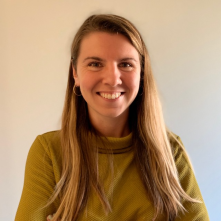
Head of Skills and Talent, National Centre for Universities & Business (NCUB)
Danni develops and leads Skills and Talent policy at NCUB, working with members and government to level up the innovation workforce. Danni joined NCUB from the Institute of Physics (IOP), where she led R&D, education and diversity and inclusion policy, and previously worked in policy, analysis, and public affairs at government laboratory NPL, and in social policy at Which?.
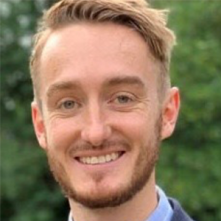
Head of Research Policy, Universities UK
Daniel Wake is the lead of the research policy programme at UUK, which includes activities on university research funding, culture, impact and collaboration.
Before Universities UK, he worked for the British Universities Finance Directors Group and the Chartered Institute of Public Finance and Accountancy. He studied politics at Loughborough University and spent a semester at Lund University in Sweden. He has an MA in Media and Cultural Analysis, also from Loughborough.
Head of TenU, University of Cambridge College London
Dr Ananay Aguilar leads the activities of TenU, an international collaboration of ten leading university technology transfer offices, formed to share effective practices in research commercialisation with the sector and government. Key initiatives created under her leadership include the USIT Guide, the TenU Future Leaders Programme and the TenU Hosts event series.
Previously, Ananay worked as an international strategic consultant on copyright, cultural policy and diversity & inclusion, having held two academic fellowships at the University of Cambridge. She is affiliated with the Centre for IP and Information Law (CIPIL) at the University of Cambridge.
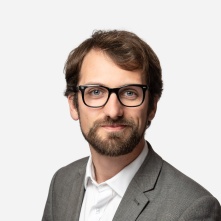
Director of the Discovery Decade project, Campaign for Science and Engineering (CaSE)
Ben Bleasdale is Director of the Discovery Decade project at the Campaign for Science and Engineering (CaSE). His team have conducted a landmark study of public attitudes towards R&D, collecting opinion data from over 20,000 people across the UK in order to help R&D advocates connect with new public supporters. Ben has previously held roles at the Wellcome Trust, Academy of Medical Sciences and the Medical Research Council, and holds a PhD in virology.

Deputy Director Business Statistics Transformation, Office for National Statistics
Craig is the lead for Business Statistics Transformation at the Office for National Statistics (ONS), leading teams focused on transforming business statistics which are used as key source data for a number of key economic outputs, such as GDP. Craig joined the ONS in 2002, and has worked across a range of economic statistics, including working with and leading teams producing quarterly GDP, Balance of Payments and Trade. Craig also has experience of leading key transformation objectives, such as improved Trade statistics, adapting a new approach to producing core National accounts and workstreams that enabled the move to double deflation.

Research Leader, Science and Emerging Technology, RAND Europe
Dr Daniela Rodriguez Rincon is a Research Leader at RAND Europe working on research and innovation policy. Daniela’s work focuses on understanding the different research and innovation funding models and mechanisms, the role and impact of research on society and how to communicate these, and research culture and environment. Her work includes a study on the changing research landscape and its impact on research assessment in the UK in the context of the REF, an evaluation of the proposal evaluation process for Horizon 2020, development of a monitoring and evaluation framework for a new grants programme at the NHMRC, work on the role of peer review in the grant application processes and assessing the outcomes of Research Council funded PhD students. Daniela has also worked as a secondee at the Medical Research Council as an Evaluation Programme Manager, and as a Research Policy Manager at the Association of the British Pharmaceutical Industry.

Chief Executive, UK Research Integrity Office (UKRIO)
James is the Chief Executive of the UK Research Integrity Office. Joining UKRIO in 2006, he took up his role in 2008, overseeing UKRIO’s transition to a registered charity supported by 120 research organisations.
He directs UKRIO’s work programme and provides support on research practice to the research community and the public. He has developed much of UKRIO’s core guidance, and regularly speaks on how to enhance research quality and research culture.
James has collaborated in numerous initiatives to support research integrity. He is currently participating in a number of high-level national projects and has been called to give evidence to multiple Parliamentary inquiries.
Prior to joining UKRIO, James worked as an archaeologist. He was elected as a Fellow of the Royal Society of Biology in 2023.

Professor of Research Policy, UCL
Professor James Wilsdon is a transdisciplinary social scientist who works on the governance of science and research, and the relationship between evidence and decision-making. In January 2023, James joined UCL as Professor of Research Policy, from where he directs the Research on Research Institute (RoRI), which he co-founded in 2019 with a mission to accelerate transformative research on research systems, cultures and decision-making. Since the late-1990s, as a researcher, writer, adviser and campaigner, James has worked at the heart of science and research policy in the UK and internationally. In 2014, James was asked to chair an independent UK review of research metrics, published as The Metric Tide. In 2022, with Stephen Curry and Elizabeth Gadd, he revisited these debates in Harnessing the Metric Tide.
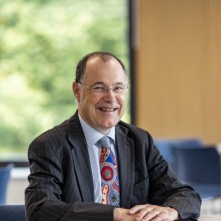
President and Vice-Chancellor, University of Southampton
Professor Mark E. Smith is the President and Vice-Chancellor of the University of Southampton. As President and Vice-Chancellor he is the Chief Executive of the University and has overall responsibility for its operations. He took up this role on 1 October 2019.
Professor Smith was Vice-Chancellor at Lancaster University from January 2012 until September 2019. He was previously Deputy Vice-Chancellor of the University of Warwick.
Throughout his academic career, he has published more than 380 papers about advanced magnetic resonance techniques, helping to understand a range of problems in the field of materials physics. He is currently a member of the executive group overseeing the National High Field Solid-State NMR Facility at the University of Warwick.
In addition to his role as President and Vice-Chancellor of the University of Southampton, he holds a number of external appointments including Senior Independent Member of UKRI EPSRC’s Council; and board member of the Higher Education Funding Council for Wales, chairing their Research Wales Committee.
He also chairs UKRI’s Financial Sustainability of Research Group and was the former Chair of the University and Colleges Employers Association (UCEA) 2016-2022. He has also served on the Boards of Jisc, HESA and HESCU.
He was awarded a CBE for Services to Research and Higher Education in the 2019 Queen’s Birthday Honours.
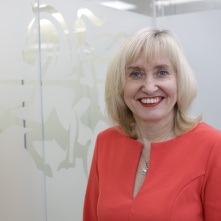
Vice-Chancellor, St George’s, University of London
Professor Jenny Higham is Vice-Chancellor at St George’s, University of London. She joined in November 2015 from Imperial College London, and Lee Kong Chian School of Medicine in Singapore, where she was Senior Vice Dean at the latter.
She has been actively involved in academic policy and delivery for a number of years, both in the UK and internationally and sits on the University sector boards of UUK [Universities UK], where she is the Funding Policy Lead and UCEA [Universities and Colleges Employers Association] Board. She was the first female Chair of the Medical Schools Council, the representative body for UK medical schools. Professor Higham continues clinical practice as a consultant gynaecologist.

Director, Research Advisory Services, EAB
Jon Barnhart is a Director in EAB’s research division. Jon has been at EAB since 2012, serving in a number of research and advisory capacities while building expertise on industry partnerships, international engagements, foreign interference, and research growth strategy. Prior to joining EAB, Jon worked for several political consulting and fundraising groups around Washington DC. He currently resides in Orange County, California.
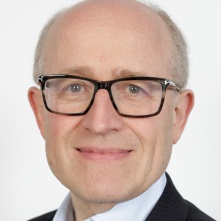
Deputy Vice-Chancellor (Research and Enterprise), St George's University of London
Professor Jon Friedland is Deputy Vice-Chancellor (Research & Enterprise) at St George’s, University of London having been Hammersmith Campus Director and Head of Infectious Diseases and Immunity at Imperial College London. Research interests are in host mediated therapies in tuberculosis, and in migrant health. He was elected FMedSci in 2008. He is a non-executive Board member of the UK Health Security Agency where he chairs the Science & Research Committee. Previously, he was Vice-Chair of the Commission for Human Medicines, chairing the Expert Working Group on Covid-19 Therapeutics throughout the pandemic. He is an inaugural Fellow, and Scientific Affairs Officer of the European Society of Clinical Microbiology and Infectious Diseases.
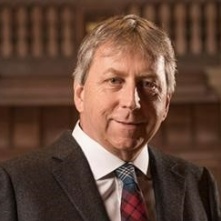
Principal and Vice-Chancellor, The University of Edinburgh
Peter Mathieson MBBS, PhD, FRCP, FRCPE, FMedSci, FRSE assumed the office of Principal
and Vice-Chancellor of the University of Edinburgh in February 2018, having previously
served as the 15th President and Vice-Chancellor of the University of Hong Kong between
April 2014 and January 2018.
Previously, Peter was Dean of the Faculty of Medicine and Dentistry at the University of
Bristol from 2008, serving most of a sixth year after his initial five-year term. He played a
major role in the formation of Bristol Health Partners from 2008 onwards and was
appointed as its founding Director in May 2012, a role he undertook alongside that of Dean.
Before that, in 2007 Peter became Head of the University Department of Clinical Science at
North Bristol, was appointed as Director of Research & Development for the North Bristol
NHS Trust, and was elected President of the Renal Association, being the youngest President
in its history.
His professional background is in medical research, teaching and clinical practice. He grew
up in Cornwall and was the first member of his family to go to university
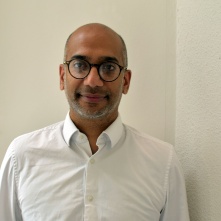
Director of Policy, Universities UK
After an initial career in publishing and media, Shahid Omer joined the civil service through the Civil Service Fast Stream and went on to have roles in Private Office, business finance (helping establish the British Business Bank), Industrial Strategy and as Senior Policy Adviser to Nick Clegg (when he was the Deputy Prime Minister during the Coalition Government). Subsequently, while at DfE, he led on Widening Participation policy in higher education, and International Higher Education (being responsible for the International Education Strategy; International Students; and Erasmus and Turing amongst other responsibilities). Most recently, he developed the Government’s Innovation Strategy while at BEIS and helped establish the Dept for Science, Innovation and Technology (DSIT) as the Transition Director following the recent Machinery of Government change. He joined Universities UK on secondment from DSIT in June 2023.

Research England Director of Research, and REF Steering Group Chair
Steven Hill is Director of Research at Research England. Steven was formerly Head of Research Policy at the Higher Education Funding Council for England (HEFCE), and leads on all aspects of research policy and funding.
Steven is responsible for research funding, including quality-related funding (QR), general capital funding and the UK Research Partnership Investment Fund (UKRPIF). He also leads Research England’s research assessment and policy work, and is the chair of the steering group for the 2021 Research Excellence Framework (REF). Policy responsibilities include research integrity, public engagement and open research, and Steven contributes to debates and discussions at home and overseas on the enhancement and assessment of research impact. His team also includes Research England’s analysis function.
This conference is open to all with an interest in this topic. Relevant job titles include:
We have a range of sponsorship opportunities available at our events. Please contact Magda Graszka, Senior Events Manager, for more information:
Our monthly updates are a great way for you to stay up to date with our work, events, and higher education news.